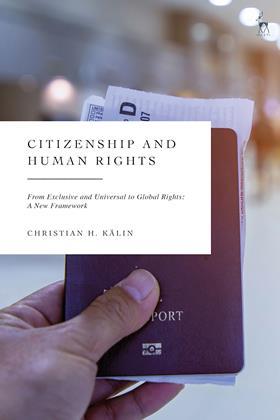Citizenship and Human Rights
Christian H Kälin
£90, Hart Publishing
★★★✩✩
The concepts of citizenship and universal human rights have been part of political discourse since at least ancient Greece. In more modern times, they have become central to national and supra-national political systems, with domestic charters like the US Bill of Rights, and international covenants such as the 1948 Universal Declaration and the European Convention.
The chief problem throughout is that there has been no universal acceptance (by philosophers, lawyers or anyone else) of the rights in the Universal or any other declaration, and even when there is broad agreement regarding the existence of any particular right, consensus invariably dissipates when it comes to the detail.
As to citizenship, the concept might be easier to define legally, but it has nonetheless generated sharp controversy in modern times with migration greatly increasing worldwide.
Christian Kälin is a practising lawyer with an impressive list of academic qualifications and publications. He has written an ambitious new book which aims to provide a ‘philosophical critique of the tension between the supposedly universal human rights and citizenship’, and to offer a new theory of human rights that might not be so western-centric and might, accordingly, be more universally accepted.

He does so by tracing a history of mostly western political thought, from the classical period through the Enlightenment to the present day, considering the philosophical concepts of ‘humanity’, the foundations of dignity and human rights, the idea of universal human rights versus citizenship, and ideas of world citizenship, before offering, in the concluding chapter, his own framework of global human rights.
The historical summaries and analysis are presented eruditely, though inevitably somewhat truncated given the wide scope, and there are also sprinklings of otiose academic jargon.
The author’s new framework, drawing extensively on philosopher John Rawls, consists of eight rights: inviolability of the person, the rule of law, subsistence, sufficient measure of liberty, freedom from forced occupation, expression, association and self-determination.
Immediately one sees the problem – countries with no welfare state evidently do not recognise a right to subsistence. What is a ‘sufficient’ measure of liberty? The limitations of freedom of expression are always disputed even in liberal democracies. Does self-determination allow minority groups to give their members less liberty than other citizens? And so on.
The book is nonetheless a worthwhile scholarly contribution, though likely to provoke more dispute than resolution – as, inevitably, will any other equally worthy attempt.
James Wilson FRHistS is an independent legal author. His most recent book is Lord Denning: Life, Law and Legacy (Wildy, Simmonds & Hill, 2023)































No comments yet